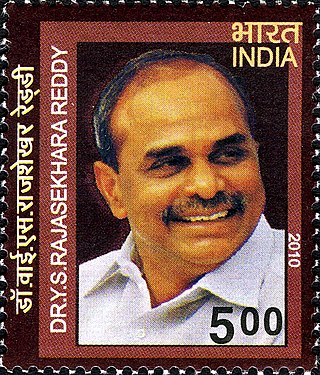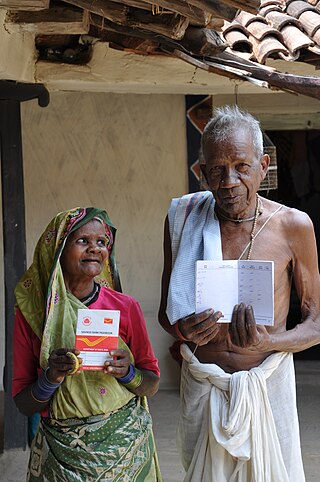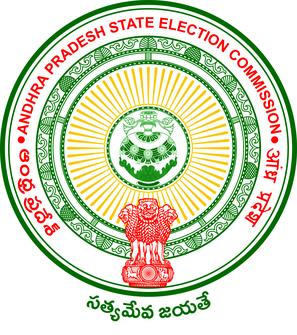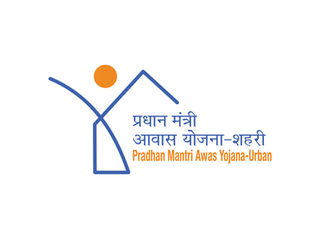
Yeduguri Sandinti Rajasekhara Reddy,popularly known as YSR,was an Indian politician. He served as the 14th chief minister of Andhra Pradesh from 2004 to 2009. Reddy was elected four terms to the Lok Sabha from Kadapa and was also elected six terms to the Andhra Pradesh Legislative Assembly from Pulivendula. Over the course of his career,he won every election that he contested,either to Assembly or Lok Sabha.

The Indian Forest Service (IFS) is the premier forest service of India. It was constituted in the year 1966 under the All India Services Act,1951.

Central Vigilance Commission (CVC) is an Indian governmental body created in 1964 to address governmental corruption. In 2003,the Parliament enacted a law conferring statutory status on the CVC. It has the status of an autonomous body,free of control from any executive authority,charged with monitoring all vigilance activity under the Central Government of India,advising various authorities in central Government organizations in planning,executing,reviewing,and reforming their vigilance work.

The Ministry of Home Affairs,or simply the Home Ministry,is a ministry of the Government of India. It is mainly responsible for the maintenance of internal security and domestic policy. It is headed by Minister of Home Affairs.
The Sampoorna Grameen Rozgar Yojana was a scheme launched by the Government of India to gain the objective of providing gainful employment for the rural poor. From 21 February 2003,EAS became an allocation-based scheme. The programme was implemented through the Panchayati Raj institutions.

The Ministry of Finance is a ministry within the Government of India concerned with the economy of India,serving as the Treasury of India. In particular,it concerns itself with taxation,financial legislation,financial institutions,capital markets,currency regulation,banking service,centre and state finances,and the Union Budget.
India has a robust social security legislative framework governing social security,encompassing multiple labour laws and regulations. These laws govern various aspects of social security,particularly focusing on the welfare of the workforce. The primary objective of these measures is to foster sound industrial relations,cultivate a high-quality work environment,ensure legislative compliance,and mitigate risks such as accidents and health concerns. Moreover,social security initiatives aim to safeguard against social risks such as retirement,maternity,healthcare and unemployment while tax-funded social assistance aims to reduce inequalities and poverty. The Directive Principles of State Policy,enshrined in Part IV of the Indian Constitution reflects that India is a welfare state. Food security to all Indians are guaranteed under the National Food Security Act,2013 where the government provides highly subsidised food grains or a food security allowance to economically vulnerable people. The system has since been universalised with the passing of The Code on Social Security,2020. These cover most of the Indian population with social protection in various situations in their lives.
Sahni,Sawhney,Sahani,or Sahney is a Punjabi Khatri surname found among the Hindus and Sikhs of Punjab,India. It is also used by people from Bihar,Uttar Pradesh,Bengal and other parts of Central India.
Tella Lakshmi Kantamma was an influential Indian politician who served as a member of parliament from 1962 to 1977. She was also a political advisor to Prime Minister P.V Narasimha Rao.

Pradhan Mantri Gramin Aawas Yojana is a social welfare programme under the Ministry of Rural Development,Government of India,to provide housing for the rural poor in India. A similar scheme for urban poor was launched in 2015 as Housing for All by 2022. Indira Awas Yojana was launched in 1985 by Rajiv Gandhi,the Prime Minister of India,as one of the major flagship programs of the Ministry of Rural Development to construct houses for the Below Poverty Line population in the villages.

The National Social Assistance Programme (NSAP) is a Centrally Sponsored Scheme of the Government of India that provides financial assistance to the elderly,widows and persons with disabilities in the form of social pensions. The NSAP scheme only includes Below Poverty Line individuals as beneficiaries.

Andhra Pradesh State Election Commission is a Constitutional authority agency of Andhra Pradesh,India. It was formed under the Articles 243-K and 243-ZA of Constitution of India. It conducts the Rural and Urban Local Body Elections in the Indian state of Andhra Pradesh.
Sansad Adarsh Gram Yojana is a rural development programme broadly focusing upon the development in the villages which includes social development,cultural development and spread motivation among the people on social mobilization of the village community. The programme was launched by the Prime Minister of India,Narendra Modi on the birth anniversary of Jayaprakash Narayan,on 11 October 2014.

Pradhan Mantri Awas Yojana (PMAY) is a credit-linked subsidy scheme by the Government of India to facilitate access to affordable housing for the low and moderate-income residents of the country. It envisaged a target of building 2 crore (20 million) affordable houses by 31 March 2022. It has two components:Pradhan Mantri Awas Yojana(Urban) (PMAY-U) for the urban poor and Pradhan Mantri Awaas Yojana (Gramin) (PMAY-G and also PMAY-R) for the rural poor,the former administered by Ministry of Housing and Urban Affairs and the latter by Ministry of Rural Development. This scheme converges with other schemes to ensure that houses have a toilet,Saubhagya Scheme for universal electricity connection,Ujjwala Yojana LPG connection,access to drinking water and Jan Dhan banking facilities,etc.
S. R. Sankaran (1934–2010) was an Indian civil servant,social worker and the Chief Secretary of the State of Tripura,known for his contributions for the enforcement of Abolition of Bonded Labour Act of 1976 which abolished bonded labor in India. One among the seven civil servants held hostage by the People's War Group in 1987,he was the chief negotiator of the state government in the negotiations of 2004 to end naxalite violence in Andhra Pradesh. He was a mentor to the Safai Karmachari Andolan,a social initiative propagated by Bezwada Wilson to eradicate manual scavenging in India. The Government of India awarded him the third highest civilian honour of the Padma Bhushan,in 2005,for his contributions to society,but he declined the honor. His social welfare activities earned him the moniker,People's IAS officer.

Ajay Prakash Sawhney is a retired 1984 batch Indian Administrative Service (IAS) officer of Andhra Pradesh cadre. He has served as the Secretary to the Government of India,at the Ministry of Electronics and Information Technology.
Preeti Sudan is the Chairperson of the Union Public Service Commission (UPSC),a central body tasked with recruiting India’s civil servants,appointed by the President of India in August 2024. Sudan joined the UPSC as a member in November 2022. Previously,she held the office of the Health Secretary of India from October 2017 to July 2020. Sudan has also served as a member of the Independent Panel for Pandemic Preparedness and Response (IPPR),an independent group overseeing the World Health Organisation (WHO) from 2020 till 2022.

The Indira Rasoi scheme provides subisidized food to anyone who wants it at Rs. 8 per meal in the Indian state of Rajasthan. The state began the program in August 2020 during the pandemic lockdown. The scheme began in 213 Urban Local Bodies and was expanded. Rasoi means kitchen in Hindi. The program is subsidized by the state government. The canteens get Rs. 17 from the state government per meal.











